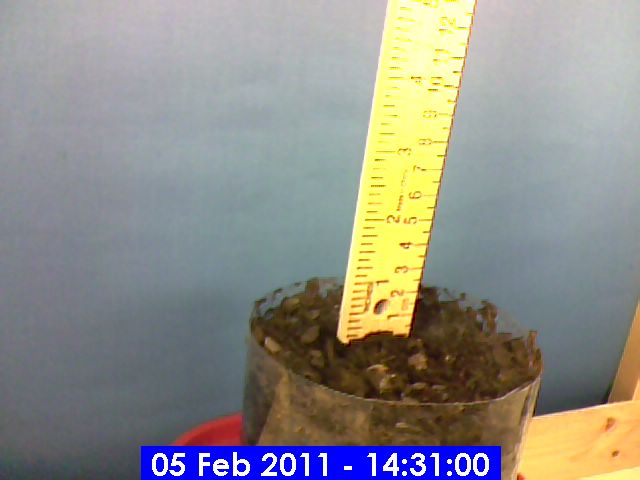 I was sorting through some files today, and ran across a couple of pictures that illustrate the effectiveness of my "green wall" pretty well. The webcam is mounted high on the wall of the balcony, looking down at the morning glory vines at an angle which is almost 90 degrees from the angle that the leaves assume in order to get the greatest exposure to the sun. The result of this is that the camera looks at the leaves from an almost edge-on viewpoint, and they don't appear to provide nearly as much shade and privacy as they actually do.
I was sorting through some files today, and ran across a couple of pictures that illustrate the effectiveness of my "green wall" pretty well. The webcam is mounted high on the wall of the balcony, looking down at the morning glory vines at an angle which is almost 90 degrees from the angle that the leaves assume in order to get the greatest exposure to the sun. The result of this is that the camera looks at the leaves from an almost edge-on viewpoint, and they don't appear to provide nearly as much shade and privacy as they actually do. Looking at the wall from a position of being seated on the balcony, the foliage really does do a good job of blocking the view of the neighbors' apartments. From the "outside", the effect is even more pronounced, blocking the direct afternoon sunlight - and the view of nosy neighbors - almost entirely.
Looking at the wall from a position of being seated on the balcony, the foliage really does do a good job of blocking the view of the neighbors' apartments. From the "outside", the effect is even more pronounced, blocking the direct afternoon sunlight - and the view of nosy neighbors - almost entirely.All of these pictures were taken this past July 10th, just a few minutes apart from each other. The leaf coverage actually improved a bit beyond this before the season was over and they started to thin out again. Back when I started this experiment, I really wasn't too sure if it was going to work all that well. I'm now quite convinced that a few pots of dirt and packets of seeds can grow you some privacy, even in less-than-ideal conditions.




